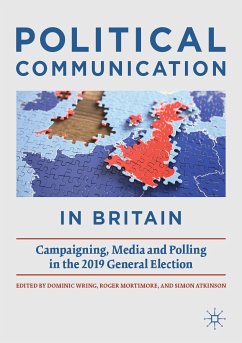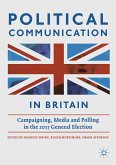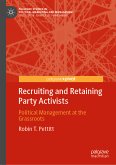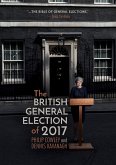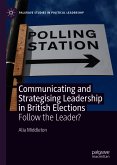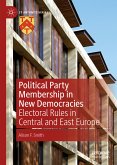Political Communication in Britain offers unique insights from various members of the party, media, and polling organizations that contested, reported, and analysed the 2019 British General Election, as well as leading academic experts who have researched the campaign.
Following an essay by Sir John Curtice exploring how the critical issue of Brexit influenced the election, the opening part of this volume features insiders discussing their respective parties' operations, including their successes and disappointments. This section also includes expert examinations of Boris Johnson's 'oven ready deal' as well as the digital advertising and controversial public relations efforts that helped promote it. The middle part of the book considers the media, with chapters from the BBC, Sky News, and regulator Ofcom, along with analyses of the pro-Conservative press, digital-only plat[1]forms, and the more left-leaning alternative news sites. The closing section of the volume turns to public attitudes, with experts, including leading pollsters, exploring how these contributed to the Conservatives' victory. Dedicated chapters also place opinion research in broader context through examining the historical role of the exit poll, and the changing reception and reporting of polls both online and in print. Political Communication in Britain provides readers with an indispensable guide to the 2019 General Election from several of those most intimately involved in the campaign.
Roger Mortimore is Professor of Public Opinion and Political Analysis at King's College London, UK, and Director of Political Analysis at Ipsos MORI. Simon Atkinson is Chief Knowledge Officer at Ipsos
Dieser Download kann aus rechtlichen Gründen nur mit Rechnungsadresse in A, B, BG, CY, CZ, D, DK, EW, E, FIN, F, GR, HR, H, IRL, I, LT, L, LR, M, NL, PL, P, R, S, SLO, SK ausgeliefert werden.

